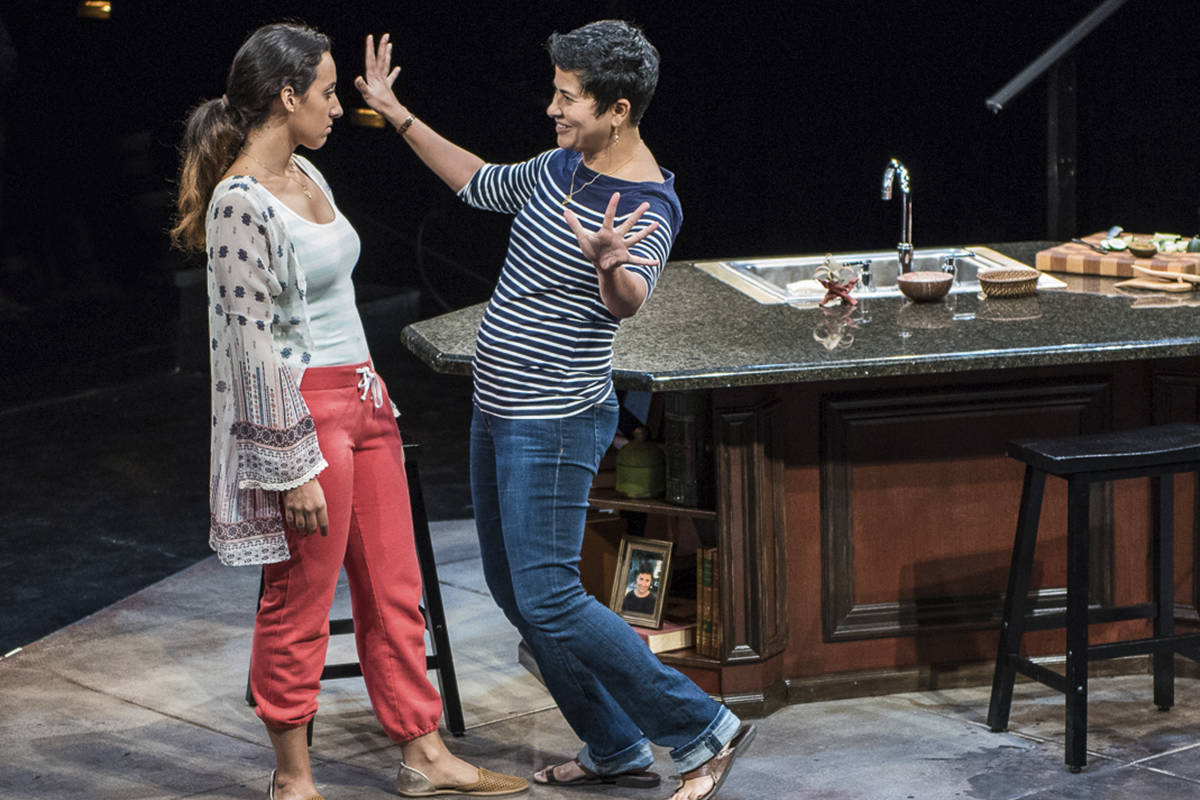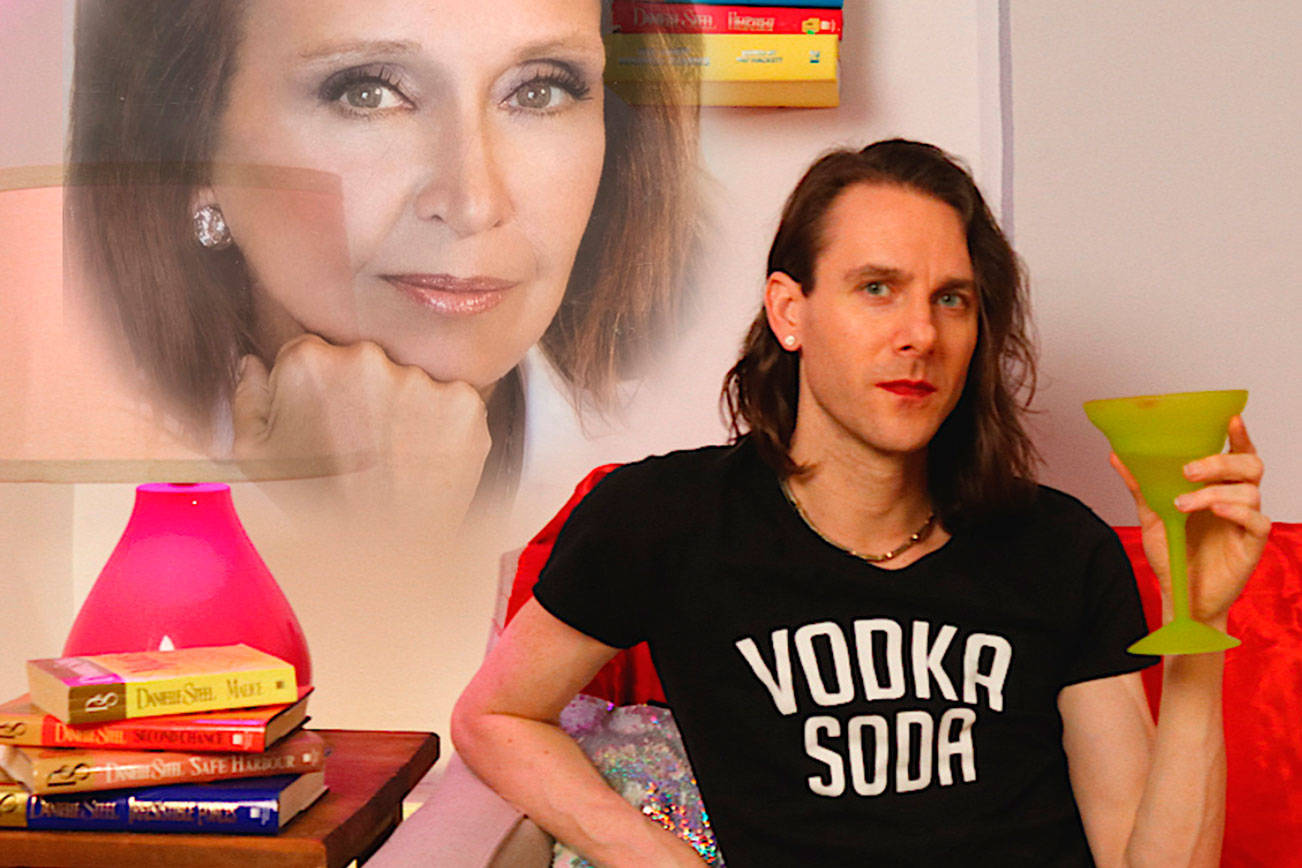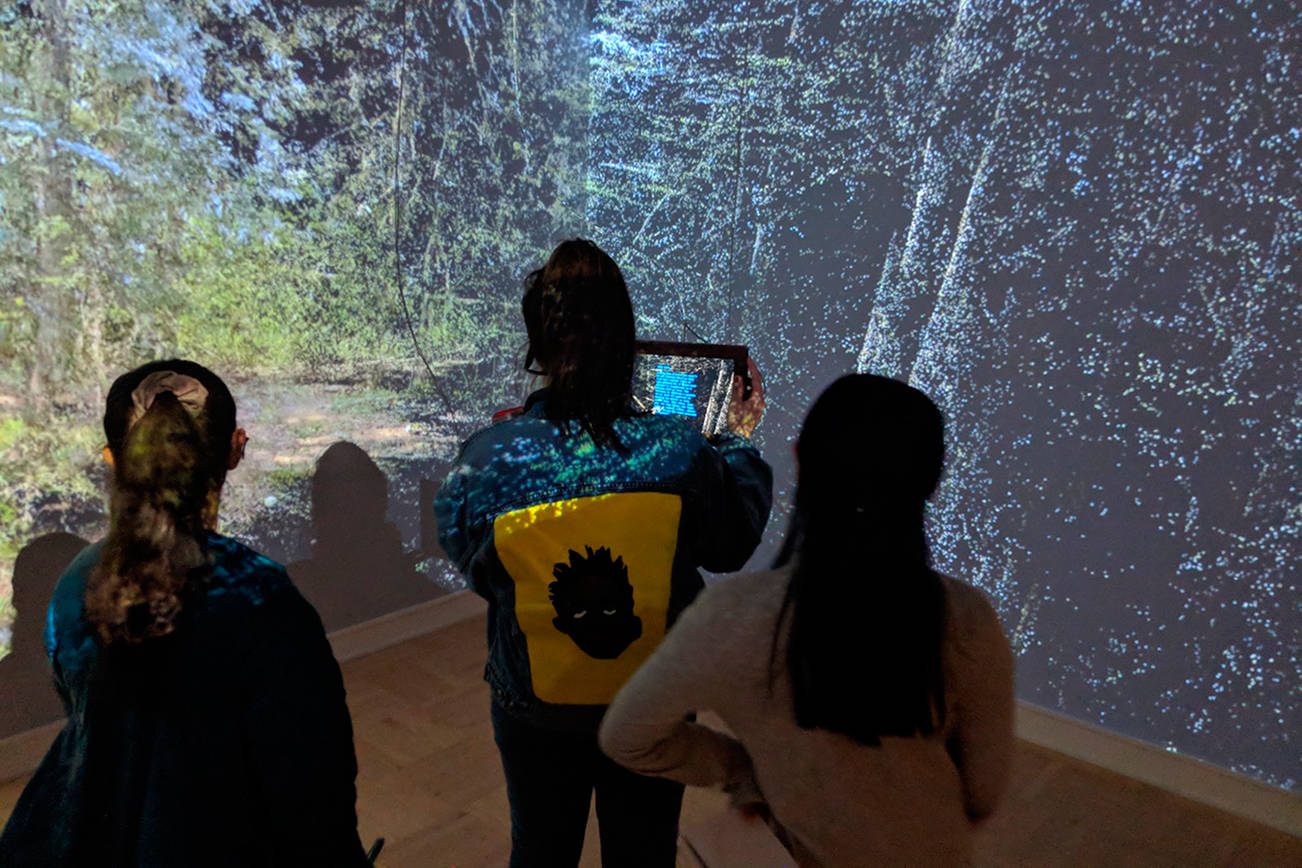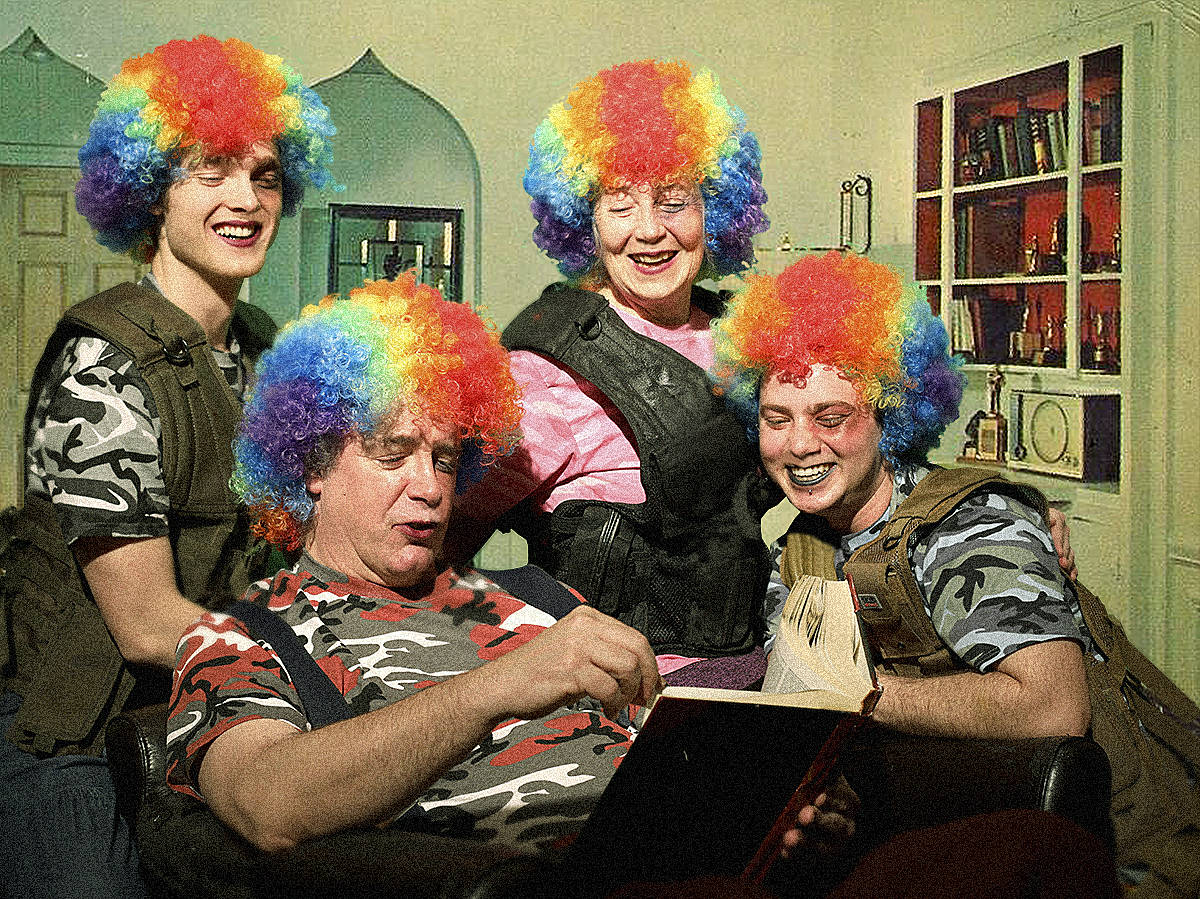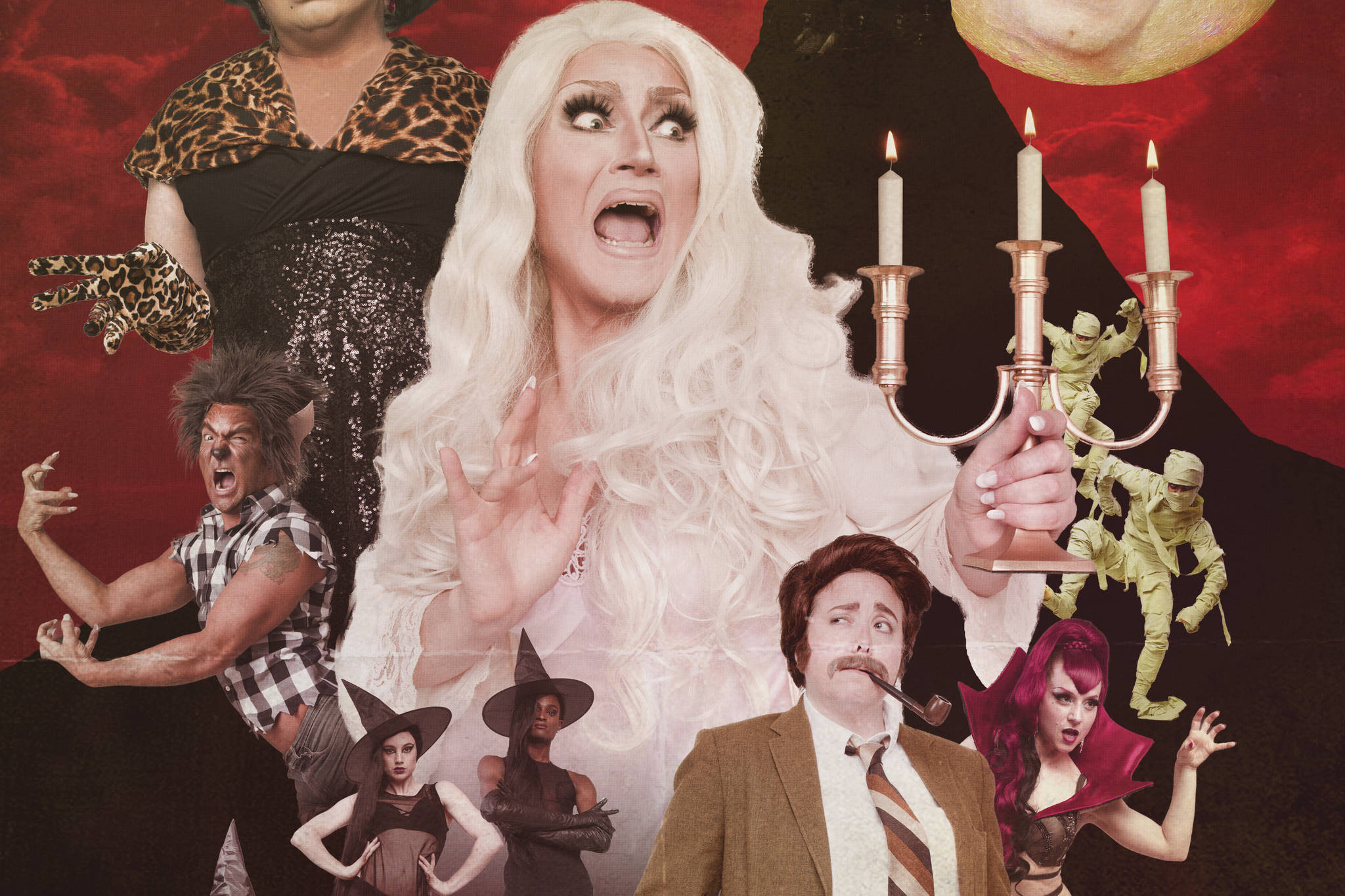French philosopher Jacques Derrida poses a theory for the two modes of love: the who and the what—the latter being one’s describable qualities, the former being that which is difficult to articulate, or a person’s essence. This philosophical question is what Pakistani-American writer and actor Ayad Akhtar describes as the seed of his play The Who & the What. Directed by Samip Raval and co-produced by South Asian arts organization Pratidhwani, the show follows the story of a Pakistani-American family as they struggle to locate the “who” of the Prophet Muhammad, alongside gendered expectations within both their family and the larger context of faith traditions.
Seattle theatergoers might be familiar with Akhtar’s work; his Pulitzer Prize-winning play Disgraced was produced by Seattle Repertory Theatre in 2016. Akhtar’s work centers contemporary Western Muslim identities, and strives to challenge the “militant East/West dichotomy,” Akhtar said in an interview with the Bush Theatre.
“There is no universe in which I start online dating,” 32-year-old writer Zarina (Monika Jolly) says to her sister Mahwish (Alaji) in the opening scene. Unbeknownst to Zarina, her bold father Afzal (Abhijeet Rane) has created a profile for her on muslimlove.com. In a modern take on arranged marriage, Afzal interviews men before bestowing his approval. After several meetings, he finds a suitable match for Zarina: Eli (Andre Nelson), a white Muslim convert from Detroit. After an initial objection to her father’s secret matchmaking, Zarina agrees to meet Eli.
“I have this sense of who Muhammad was, [but] none of these things point to a real person,” Zarina says to Eli on their first date as she shares her attempts to locate that “who” of the Prophet through a novel she is writing. She questions the Prophet’s sexual desire and contradictions in an attempt to locate his imperfect humanity. In one poignant scene, Afzal and Mahwish confront Zarina on her manuscript, a move that brings up Zarina’s objection to patriarchal structures within their family. “You covered me up, you erased me, and I let you,” Zarina says to Afzal of his attempts to control her romantic life. This moment is made more intense by the audience’s proximity to the stage, possible thanks to Lex Marcos’ theater-in-the-round design. In this tense scene, both Rane and Jolly liberate elements of their character that had been hidden throughout the play. As an acting duo, the two are tremendous. Rane’s soft, sensitive, yet patronizing Afzal is multifaceted, and a complement to Jolly’s grounded and witty Zarina. I was enthralled by both them and by Akhtar’s writing.
Zarina’s attempts to locate the “who” of the Prophet are polarizing within her family and community. Yet, she argues, “we can’t not keep saying things because we are afraid of what someone is going to do.”
stage@seattleweekly.com
ArtsWest, 4711 California Ave. S.W., artswest.org. $17–$38. All ages. Ends Sun., Oct. 1.
